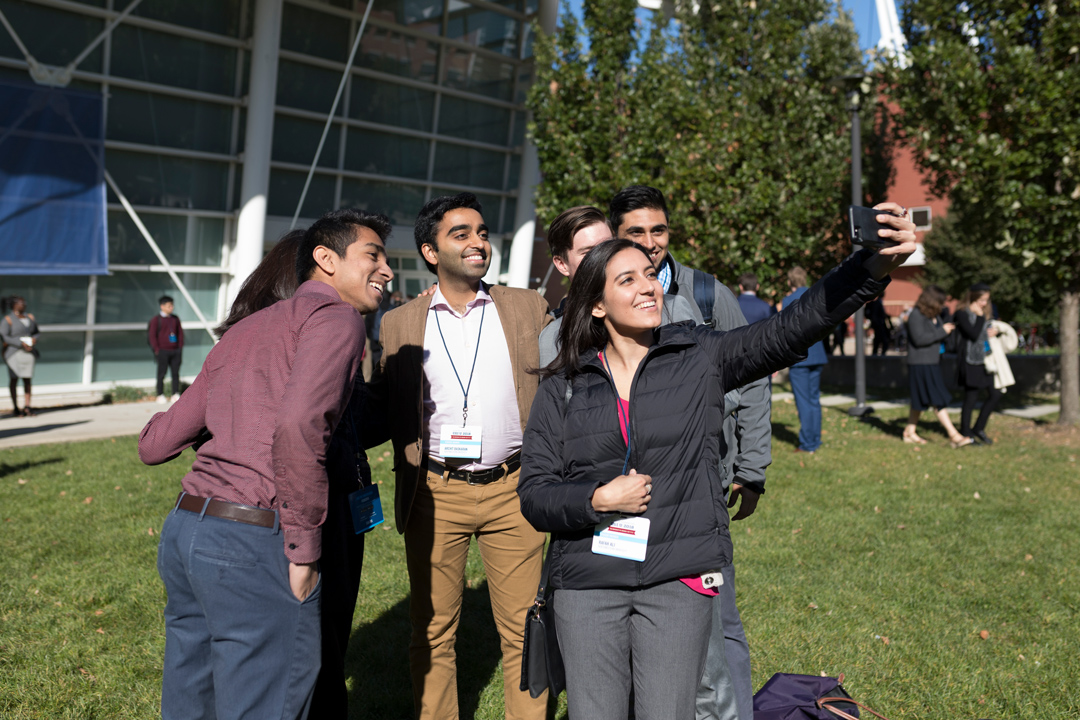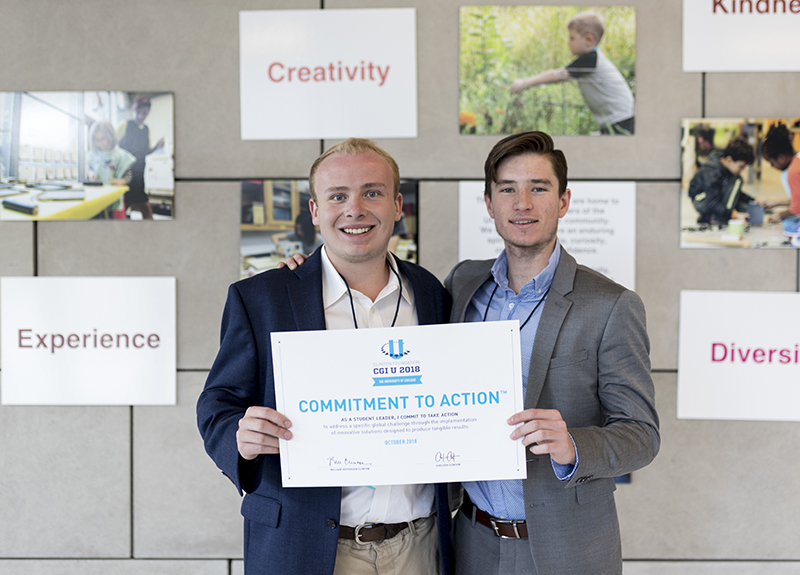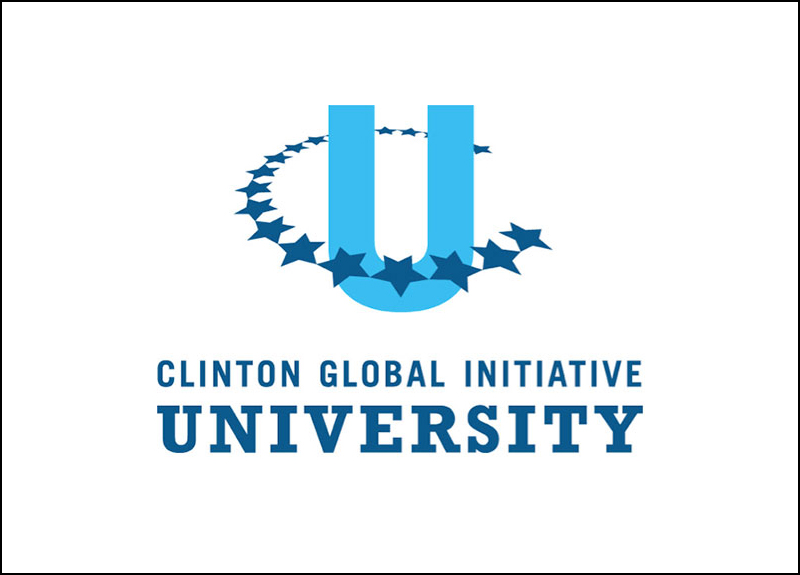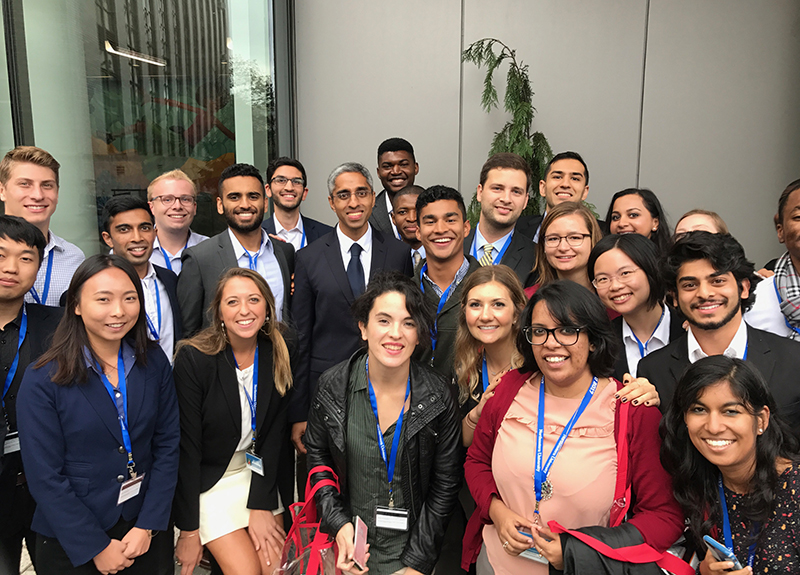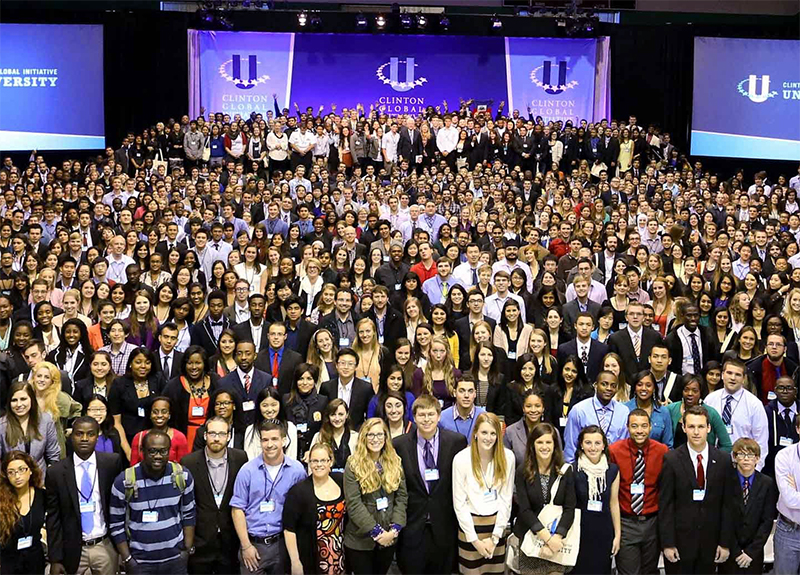Northwestern students attend Clinton Global Initiative University
Story by Monika Wnuk // Originally published by Northwestern Now
When Evan Taylor returned from a family trip over winter break as a sophomore in 2016, he wanted to exchange all the foreign coins he’d collected abroad. He quickly realized that currency exchanges won’t exchange foreign coins, leaving travelers with pockets of coins that become nothing more than souvenirs. Taylor researched alternatives and found UNICEF’s Change for Good program, which accepts foreign coins as donations. Back at Northwestern, he started to wonder what a similar program could look like in Chicago.
Taylor assembled a team of Northwestern students – economists, computer scientists, and engineers – to research the problem and develop a solution. From those initial talks, Community Currency was born. The non-profit is now in talks with Chicago airports to install receptacles for foreign currency that would be donated to the Boys & Girls Clubs of Chicago.
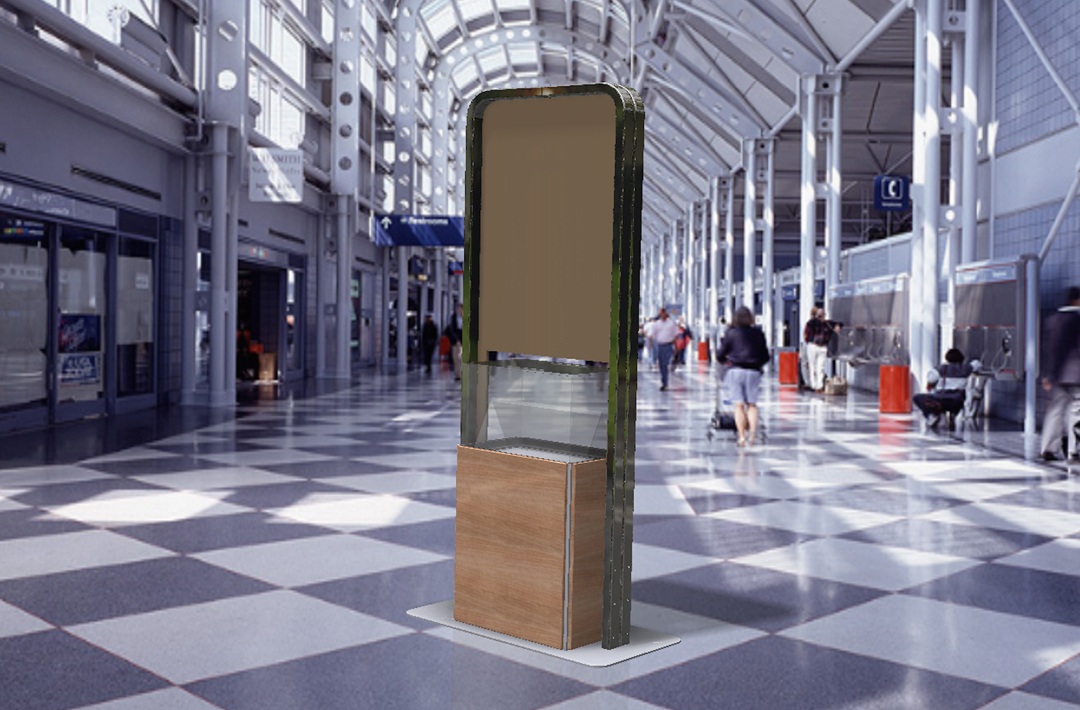
Above: Design of Community Currency's airport receptacle
We knew there were plenty of amazing organizations in the city that would be able to turn that money into something positive, and that was the driving factor in starting Community Currency,” says Zach Hennenfent ’19 WCAS, director of finance.
For the second year, Hennenfent is one of 25 Northwestern students invited to participate in the Clinton Global Initiative University (CGI U) program. CGI U was founded in 2007 by Bill and Chelsea Clinton to engage the next generation of leaders on college campuses around the world.
In 2014, the Institute for Sustainability and Energy at Northwestern launched a CGI U chapter on campus. Since then, Northwestern students have joined 1000 other young leaders at an annual summit with the Clinton family and a network of social impact leaders.
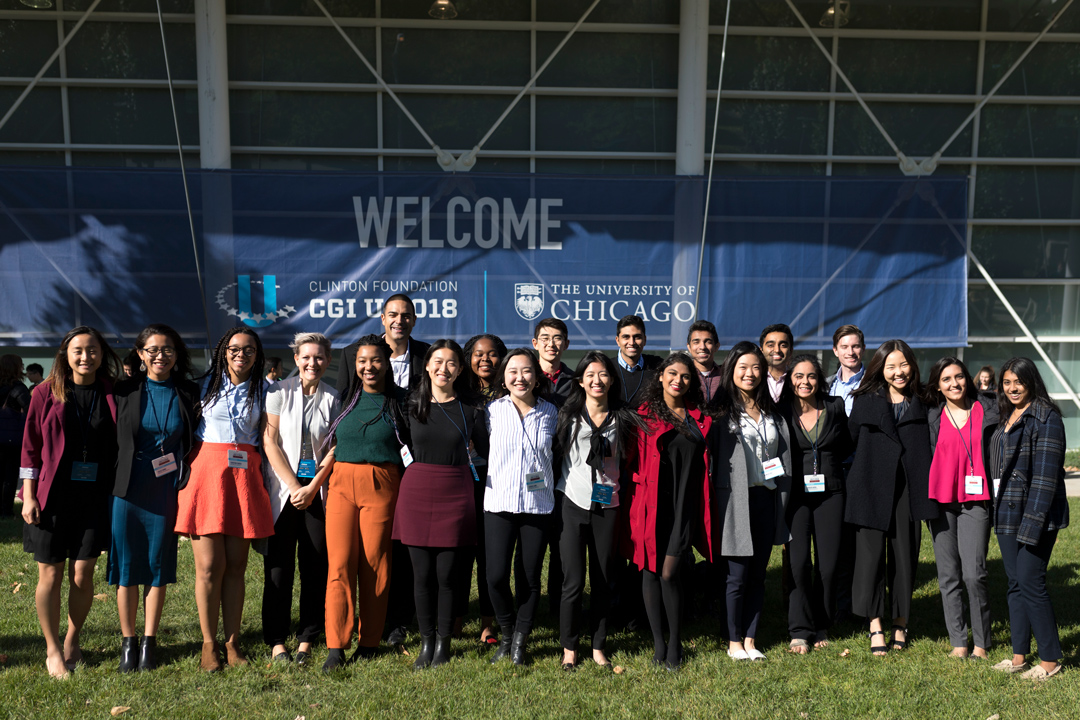
Above: Twenty-five Northwestern students attended the 2018 CGI U summit.
“CGI U is a hugely inspirational weekend,” says Hennenfent. “It has helped us generate new ideas for Community Currency and make connections with other young people who are working in the social impact space.”
Students met at the University of Chicago campus this year to learn how to strengthen and scale their projects addressing issues in education, the environment and climate change, peace and human rights, poverty alleviation, and public health. They heard from leaders on a wide range of topics including civic engagement, freedom of expression, gun violence and disaster recovery.
uch like Community Currency, another Northwestern team that attended CGI U recognized a gap in resources where a thoughtful solution could make a big difference. Health Connections, started by three Northwestern pre-med students aims to mobilize college students to act as advocates for patients of a nearby hospital system.
Students would work closely with case managers at hospitals who are tasked with following up with a patient once they are discharged. Case managers address the social aspects of health, including access to three meals a day, affordable housing, healthcare information, and English as a Second Language classes.
“Health Connections isn’t just for pre-meds. It’s for anyone who wants to work in a field that interacts with people, whether that’s law, social work, business, or many others,” says Colin Wang ’18 WCAS, who is currently a medical student at the University of Chicago. “The idea is to teach students how to empower the people who our health systems support.”
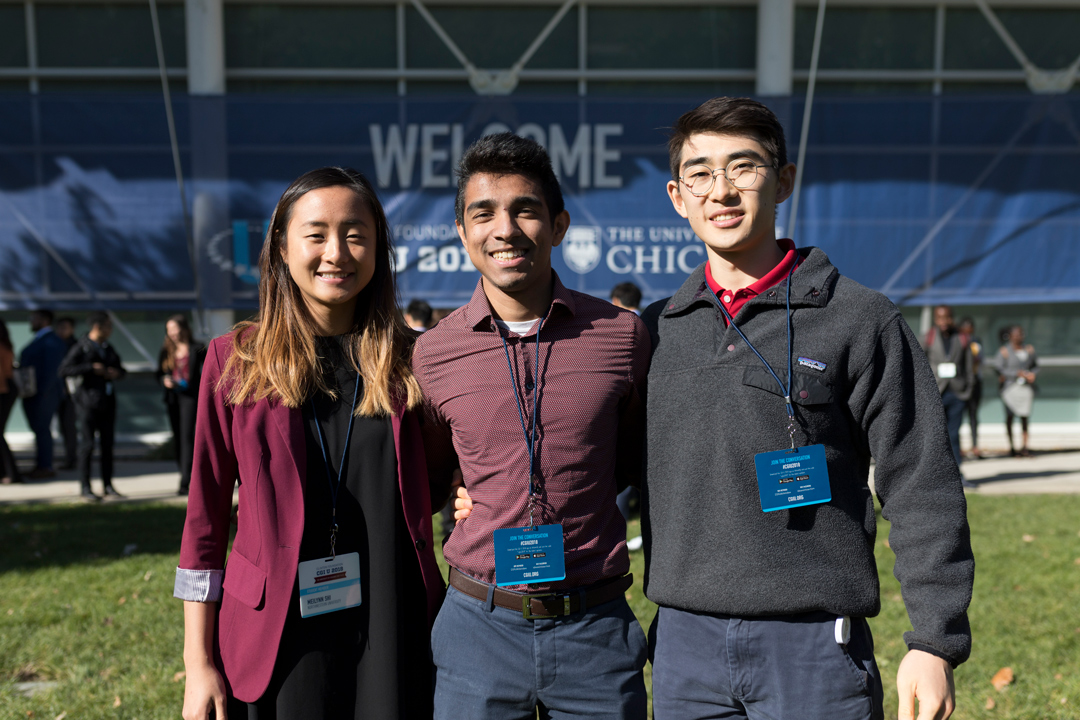
Above: The Health Connections leadership team: Meilynn Shi '20 FSM/WCAS, Sanjeev Saravanakumar '18 WCAS and Colin Wang '18 WCAS.
This academic year, Health Connections has partnered with a clinic on Chicago’s North Side, and have two current students leading the recruitment and training process on campus.
“Attending CGI U and hearing how many people are working on various aspects of healthcare confirmed for us that we are really on to something,” says Sanjeev Saravanakumar ’18 WCAS, who is now working at IBM in healthcare and life sciences.
The ultimate goal, says Wang, is to expand the model to other campuses around the US.
“The opportunities for case managers are only growing, and only becoming more important. As we see a reduction in healthcare services, and a rapidly changing landscape, we understand the real impact that students can have on improving quality of life for patients around the country.”
